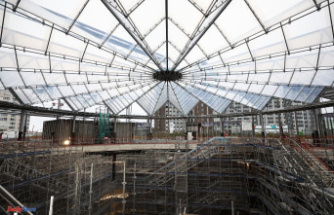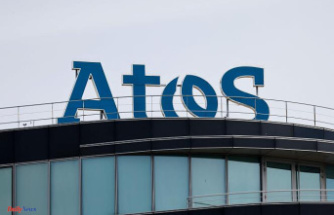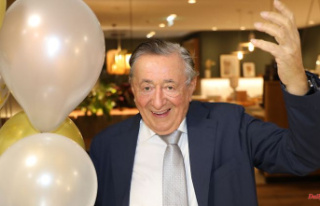The emigration of tens of thousands of men is putting pressure on the Russian economy. Above all, well-trained and skilled workers try to leave the country.
According to the domestic central bank, the Russian economy lost significant momentum after the partial mobilization at the end of September for the war in Ukraine. The bank did not give specific figures.
Russian President Vladimir Putin announced on September 21 that 300,000 people would be mobilized. As a result, it is estimated that hundreds of thousands of Russians left their country to avoid being deployed at the front - including many young, well-educated men.
The state payments to those convened should at least cushion the negative consequences for consumer demand, said deputy central bank governor Alexei Zabotkin. Above all, men from ethnic minorities and poor sections of the population are conscripted. Since the pay is often well above the wages of these conscripts, the Russian government is hoping for stimuli for private consumption in the future.
In view of the sanctions imposed by the West because of the Russian war of aggression, the central bank assumes that the Russian economy will shrink sharply this year. The minus will probably be in the upper range of four to six percent, it said.
According to the forecast by the rating agency Scope, the economy will not return to the level it had before the invasion of Ukraine until the end of the decade. The Kremlin, with the help of the central bank, used the unexpectedly high export earnings to cushion the direct consequences of the war and Western sanctions on the domestic economy, according to the study available to Reuters. "But the longer-term prospects have deteriorated," writes Scope analyst Levon Kameryan. By the end of next year, gross domestic product will be around eight percent below the 2021 level due to western sanctions. It will therefore probably take the Russian economy until around 2030 to return to pre-war levels.
The central bank assumes that the contraction of the Russian economy will bottom out in the first half of next year. According to central bankers, the strong inflation should gradually ease as a result of the downturn. "We will smoothly move towards stabilization of inflation," said Zabotkin on the development of prices. "But the decline in inflation could be slower. According to official information, the inflation rate was recently around 13.5 percent. The central bank is aiming for a value of four percent. According to its own forecasts, it will not reach this again until 2024.












